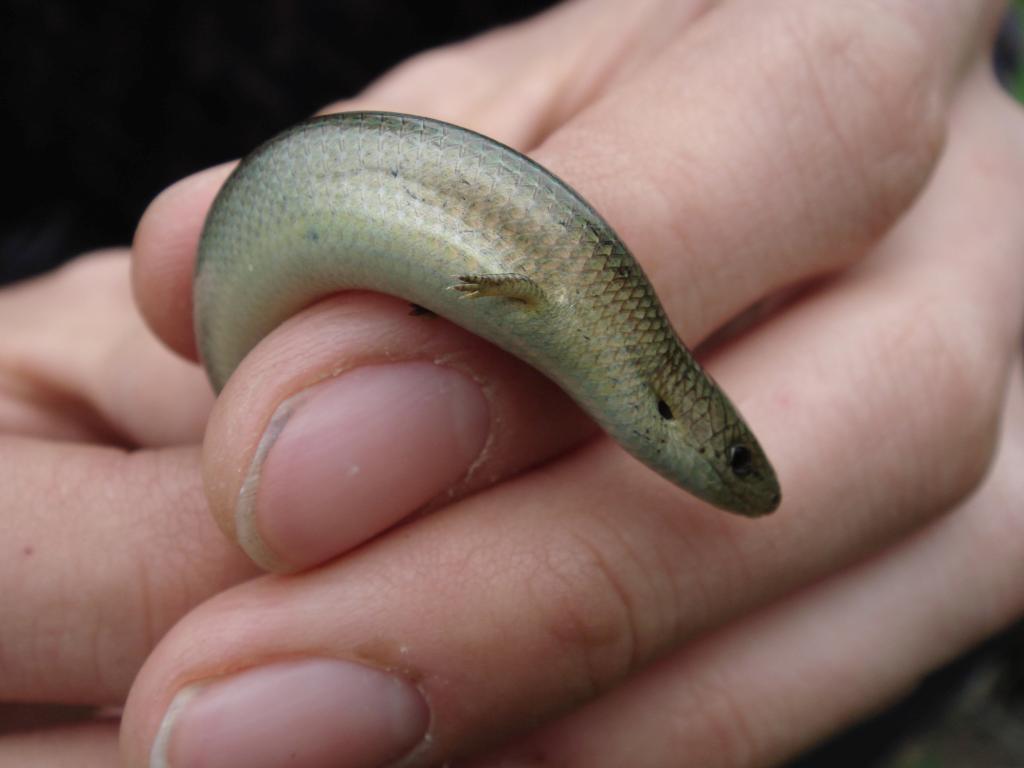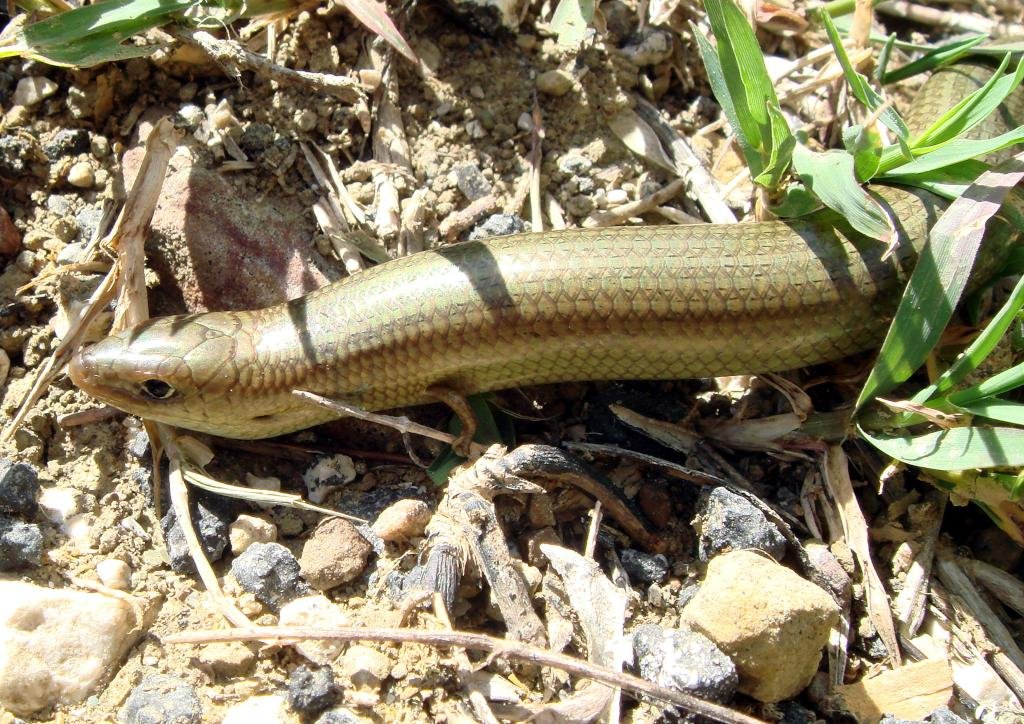- Spanish: Eslizón tridáctilo
- Scientific: Chalcides striatus
- English: Western Three-toed Skink
- French: Scinque à trois doigts
- German: Westliche Erzschleiche
- Italian: Luscengola striata
- Portuguese: Cobra-de-pernas-tridáctila
Description
Notable in the Western Three-toed Skink is the elongated serpent like body, often reaching lengths around 30 cm in total (12 inches). An intact tail can be longer than the head-body in length. Colouration is yellowish to brown or more often grey, with a metallic sheen.
They have 9 or more narrow, dark longitudinal stripes. The limbs are very short and have only 3 digits. It is very agile and fast as it moves across the surface. Females normally exceed males in length.

On the hottest days they restrict their movement to early in the morning or late evening remaining hidden during the main heat of the day and so regulating their body temperature. They prefer damp meadows and cool hillsides including seasonally flooded areas, abandoned fields, hedges and land with abundant herbaceous vegetation.
The Western Three-toed Skink feeds mainly on insects – crickets, grasshoppers, caterpillars and spiders and worms etc.
Between March and June the breeding season begins. Between two and three months after mating, females give birth to 1 – 12 fully formed young. They are ovoviviparous (able to incubate the eggs inside the female)
- Conservation Status: LC. Least Concern – The IUCN has listed the western three-toed skink as being of “Least Concern” because of its wide range and the fact that it is very common in some parts of its range. It is nevertheless threatened by changes in agricultural practices resulting in degradation of its habitat. In some areas it is persecuted because it is mistakenly thought to be venomous.
- Distribution: Portugal, Spain, the Mediterranean coast of France, NW Italy.
Similar species: Bedriagai’s Skink (Chalcides bedriagai)
The Grazalema Guide
The best way to see all our web projects in one place is over at the Grazalema Guide.
The Grazalema Guide – Tourist Information Portal for the Sierra de Grazalema, Wildside Holidays, The town of Ronda and the Caminito del Rey.
I’ve been living in this lovely area of Western Andalucia for the last 20 years or so and dedicate most of my time to the running of English language tourist information websites for the towns of Cádiz, Ronda, Grazalema, the famous or infamous Caminito del Rey, and also Wildside Holidays, which promotes sustainable and eco-friendly businesses running wildlife and walking holidays in Spain. My articles contain affiliate links that will help you reserve a hotel, bus, train or activity in the area. You don’t pay more, but by using them you do support this website. Thankyou!
